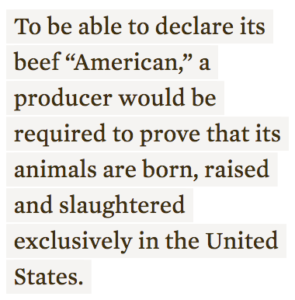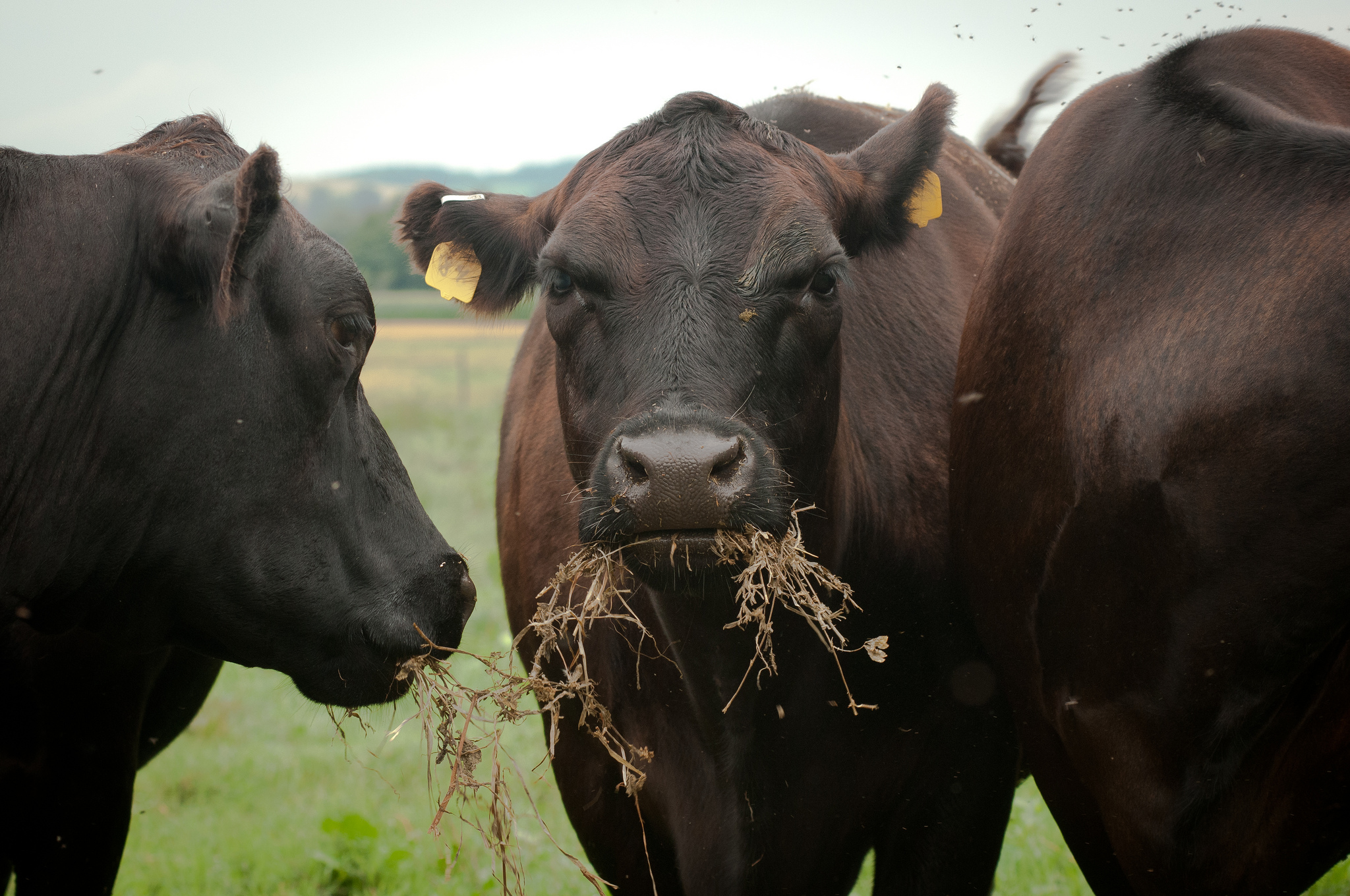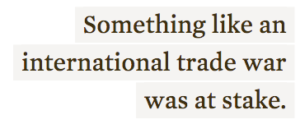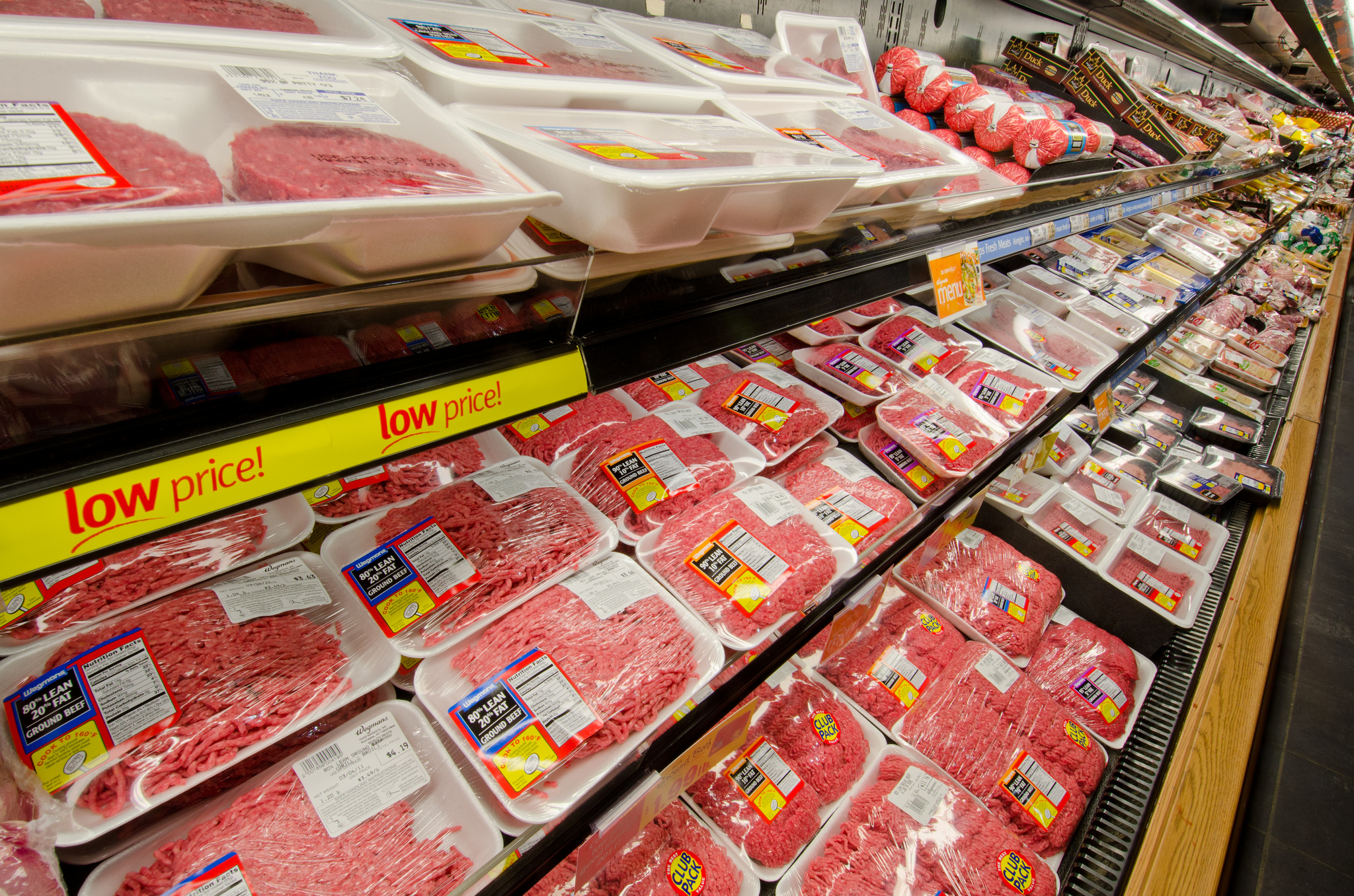New Food Economy: Colorado lawmakers want to make American beef COOL again
Country of Origin Labeling laws may appease domestic producers but not America’s trading partners.
by Sam Bloch | January 18th, 2018
When Americans buy fresh, perishable food, we usually expect to know where much of it comes from.
That’s due to an oft-contested law known as Country of Origin Labeling (COOL). When the law was first codified as part of the 2002 farm bill, it required retailers—including most grocery stores, supermarkets, and club warehouse stores—to notify customers about the sources of a variety of foods. The list of foods expanded in 2005 and 2009, growing to include a wide range of commodities. Today, it includes lamb, goat, and chicken; wild and farm-raised fish and shellfish; fruits and vegetables; peanuts, pecans, and macadamia nuts; and ginseng.
Absent from that list are raw beef and pork—products that were part of the initial legislation. They were removed in December 2015, when Congress, as part of an omnibus budget bill, made a partial COOL repeal.
Proponents of COOL have long argued that eaters have a right to know the origin of their food and that if given the choice, we will choose American-made products over imports, thereby giving domestic producers an advantage. Opponents say the requirement presented a barrier to trade, and worse, promoted the false perception that imported food is less safe.
 Late last spring, several countries temporarily banned Brazilian meat imports after police raided some of the world’s biggest processors and found evidence that they had bribed food inspectors. And the COOL debate got hot again.
Late last spring, several countries temporarily banned Brazilian meat imports after police raided some of the world’s biggest processors and found evidence that they had bribed food inspectors. And the COOL debate got hot again.
Now, Colorado wants to revive COOL labeling for beef at the state level. Representative Kimmi Lewis and Senator Vicki Marble, both Republican, have introduced a General Assembly bill that would require all raw beef sold in the state to be marketed in stores as either American or imported. Under the “Beef Country of Origin Recognition System,” as the proposed amendment to the Colorado Food and Drug Act is named, that would come in the form of highly-visible placards that retailers would provide.
To be able to declare its beef “American,” a producer would be required to prove that its animals are born, raised and slaughtered exclusively in the United States. If beef doesn’t meet that standard, it would be labeled an import. Retailers would have to list each country where those processes occurred on placards fully visible to the public.
American cattle ranchers say they have a lot to gain from this. As Food Safety News reports, the Ranchers-Cattlemen Action Legal Fund (R-CALF USA) is behind the bill. In a press release trumpeting the potential legislation, the Montana-based industry association specifically called out JBS USA, the Colorado outpost of the Brazilian beef empire, for benefiting from loose federal regulations that allow foreign beef to be labeled “Product of the USA.” R-CALF is currently suing the United States Department of Agriculture (USDA) to reinstate earlier legislation that would invalidate Congress’ repeal.

Flickr / USDA
Country of Origin Labeling already has a long, complicated, and politically loaded history
Currently, R-CALF points out, imported beef can still bear USDA’s “Product of the USA” label. That includes processed beef that’s being repackaged domestically, but also cattle that are born and raised in neighboring countries, namely Canada and Mexico, then imported here for slaughter and processing.
“The public will finally be able to distinguish between beef produced exclusively under the United States’ production and food safety standards versus beef produced in countries with different production standards and food safety systems that are not identical to ours,” Representative Lewis told R-CALF, in a press release the group issued earlier this month.
The thing is, COOL already has a long, complicated, and politically loaded history. What’s good for ranchers in Colorado, for instance, might not be good for ranchers in other states and countries, and America’s free trade position at large.

When the requirement was first signed into law in 2002, it included language similar to the Colorado bill’s, requiring that retailers list the countries where an animal is born, raised and slaughtered. In 2015, at the behest of Texas Republican Representative Michael Conaway, beef and pork were removed from the bill repealed by Congress in a 300-131 vote.
“The COOL regulation is a violation of our trade commitments, making this repeal critical to the future of our trading relationships,” Conaway said afterward.
That repeal didn’t happen in a vacuum. As Food Safety News noted, Conaway introduced the bill the same day the World Trade Organization publicly asserted that COOL discriminated against meat imports and tipped the scales in favor of domestic meat products. Never mind that Texas, Conaway’s home state, raises more beef cattle than any other state in the country. Something like an international trade war was at stake. The U.S. could’ve been subjected to billions of dollars in retaliatory tariffs from Canada and Mexico, two of America’s largest beef and pork suppliers.
As I said above, the thinking here is that American consumers, when given the choice, and proper information, will decide to shop locally. But as the Chicago Tribune noted, the data behind that is unclear. Helpfully, label opponents and supporters alike point to polls that show consumers support their respective positions.
Almost certainly, the debate will rage on when the bill heads to committee on January 29.
